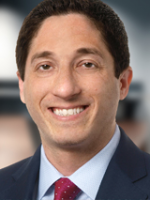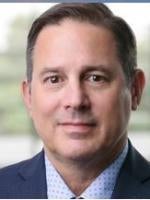In a Special Fraud Alert issued on November 16, 2020, the Department of Health and Human Services Office of Inspector General (HHS-OIG) raised significant fraud and abuse concerns with companies offering or providing remuneration in connection with physician speaker programs. Speaker programs typically involve one health care professional presenting to others on a company’s drug or device, or a disease state relevant to the company’s products, in exchange for a speaker honorarium. While speaker programs may have some legitimate purposes, HHS-OIG warned of risk the programs create for drug or medical device companies and health care professional participants, if one purpose of the program is to induce or reward federal health care program referrals.
The HHS-OIG’s overriding view – as described in the Fraud Alert – is that drug and device companies can provide education about their products without offering remuneration to health care professionals. While stopping short of declaring physician speaker programs unlawful, HHS-OIG offered common characteristics of speaker programs that it identified as suspect under the Anti-Kickback Statute and reiterated that all parties involved in speaker programs (including the sponsors, presenters and attendees) are subject to scrutiny or potential enforcement. Because the HHS-OIG rarely issues Special Fraud Alerts and has not done so in over six years, this guidance warrants the attention of health care providers along with a review of health care entities’ current practices.
In the Fraud Alert, HHS-OIG identified the following non-exhaustive list of “suspect characteristics,” which may be present in speaker programs and increase the risk of liability under the Anti-Kickback Statute:
-
Little or no substantive information is presented at a company-sponsored speaker program;
-
Alcohol is available or free, or a meal greater than modest value is provided to attendees;
-
The program’s setting is not conducive to the exchange of educational information (e.g. restaurants, sports or entertainment venues);
-
A company sponsors a large number of programs on the same or similar topic, particularly where there is no recent substantive change in relevant information;
-
No new medical or scientific information, or a new FDA-approved or clear indication for the product, has occurred in a significant period of time;
-
Health care professionals attend the same or substantially similar programs more than once;
-
Program attendees do not have a legitimate business reason to attend (e.g. significant others of the health care professional attendee, employees of the speaker’s medical practice, others with no use for the information, etc.);
-
Sales or marketing personnel influence the selection of speakers or the company selects speakers or attendees based on past or expected revenue they will generate by ordering company products; and,
-
Compensation the company pays health care professionals for speaking is more than fair market value or takes into account the volume or value of past or potential business generated.
HHS-OIG emphasized in the Fraud Alert the many investigations and enforcement actions under the federal False Claims Act and Anti-Kickback Statute that involved allegations of remuneration paid for speaker programs and included one or more of the characteristics listed above. HHS-OIG also acknowledged the nearly $2 billion that drug and device companies reported as being paid to physicians for speaker-related services in the last three years. Drug and device companies are currently required to report payments provided to physicians, and this information is publicly available on the Centers for Medicare and Medicaid Services’ Open Payments website here.
A recent settlement between Medtronic USA Inc. and the Department of Justice highlights these enforcement efforts and the importance of properly reporting payments made to physicians. On October 29, 2020, Medtronic agreed to pay over $9.2 million to settle allegations that Medtronic violated the Anti-Kickback Statute and False Claims Act by holding and paying for over 130 events at a restaurant owned by a neurosurgeon. The Government alleged the events were often lavish, social in nature and sales personnel falsely stated events were to discuss educational or business information. The settlement also resolves allegations Medtronic improperly reported the value paid to the physician, in violation of open payments reporting requirements.
Given the risks attendant to speaker programs and HHS-OIG’s skepticism, the Fraud Alert highlighted alternative means for drug and device companies to educate health care professionals about their products. Those suggestions include the provision of online resources, the package inserts for drugs or devices, third-party educational conference and medical journals. Based on the COVID-19 pandemic, the HHS-OIG also noted that there has been an overriding need to halt in-person events, including speaker’s programs, which reinforces their limited utility or educational content and the viability of alternative ways to educate health care professionals.
What Providers Should Know
-
The Special Fraud Alert warns that all participants in speaker programs – drug or device companies and health care professionals that present at or attend those events – may be subject to an enforcement action if the programs violate the Anti-Kickback Statute and, by extension, the False Claims Act. This focus on individual actors along with company liability is an increasingly common theme in enforcement guidance and actions by the Government.
-
While the Special Fraud Alert does not prohibit speaker programs outright, risk under the Anti-Kickback Statute is a fact-specific inquiry and the Fraud Alert is one tool health care entities can use when assessing their risk.
-
Health care providers that offer or attend speaker programs should carefully assess whether current practices align with the identified suspect characteristics and determine whether changes are warranted. This includes the evaluation and use of alternatives to speaker programs which offer education about a drug or device without providing remuneration to health care professionals.
-
Overall factors HHS-OIG identified as suspect are not surprising, such as the level of speaker compensation, value of meals provided, program setting or identity of attendees. But, HHS-OIG offering detailed characteristics of suspect programs that health care providers may not have specifically contemplated should be considered when deciding whether to allow speaker events in the future.
-
Given the highly infrequent use of Special Fraud Alerts by HHS-OIG, providers should view the HHS-OIG’s guidance as a warning shot preceding future investigations and enforcement actions. Through the Fraud Alert, HHS-OIG has signaled that speaker programs are a priority area for enforcement which requires health care entities’ full attention.
For More Information
The November 16, 2020 Special Fraud Alert: Speaker Programs is available here.






 />i
/>i

